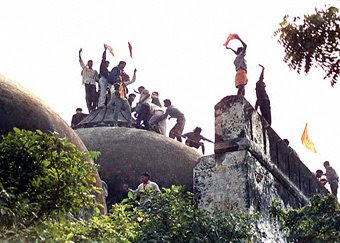During the 76th session of the Indian History Congress held at the University of Gour Banga in Malda from December 27 to December 29, the Congress passed resolutions on the need to prevent the formulation of uniform syllabi across all universities, protect monuments, and stop the utilisation of monuments destroyed illegally (such as the Babri Masjid) for political gains.
The Indian History Congress was established in Poona in 1935 at its first session under the name Modern History Congress, which was altered to its present name in 1938 at its second session at Allahabad. It was consciously organised as a forum for Indian historians and has held its annual sessions regularly since 1938. It has regularly considered issues of historical and national interest, and passed resolutions. In 1975 and 1976 it was the only Indian academic organisation that criticised the imposition of the Emergency in its resolutions.
Since 1984 the Indian History Congress began to raise its voice against the threat to monuments, posed by the agitation against the Babri Masjid and agitations, both from different groups, demanding the Right of Worship in different monuments. It condemned the demolition of the Babri Masjid in 1992, and its present resolution is consistent with the standpoint it has consistently taken as the main body of India’s professional historians.

Resolution 1
Flexibility needed for History Syllabi in Universities
The Indian History Congress is deeply concerned by the decision of the University Grants Commission (UGC) to introduce a uniform syllabus across universities in the country. Such a measure does not do justice to the differentiated nature of universities in different parts of the country. They adversely affect all of them by not allowing them to make use of their natural potential. Conceding a latitude of 20 to 30% will not address this problem.
The work of regulatory bodies such as UGC should normally be to monitor the implementation of minimum standards and the basic principles enshrined in the constitution. Creating a homogenous syllabus from the whole country goes beyond this mandate and will strike at the roots of the autonomy of universities. Imposing a syllabus necessarily created by those who are unaware of the ground realities of particular universities will be tantamount to downgrading universities to the level of primary schools, defeating the purpose of higher education, and denying universities a chance to develop the resources available to each.
Resolution 2
Protecting Monuments
The Indian History Congress has been constantly drawing the attention of the Archaeological Survey and other authorities towards the deteriorating condition of several monuments in the country, and their poor present state of preservation and lack of proper repair. At its 75th session (2014) at JNU, Delhi, it cautioned all concerned against the kind of restoration work by the Aga Khan Trust, which has gravely imperiled the status of Humayun’s Tomb — a world-heritage site. There are reports in the press of a crematorium affecting the Taj Mahal, and a fly-over dominating Akbar’s tomb, Sikandra. There are fears that Ajanta frescoes are getting affected. It is necessary to develop and enforce a rigorous system of protection and preservation on the strict established principles, so as to save our great national heritage.
Resolution 3
No permission must be given to utilise the illegal destruction of monuments such as Babri Masjid for political gains.
The Indian History Congress had strongly urged at its sessions from 1984 onwards that the Babri Masjid was entitled to protection both as a medieval monument, built in 1528, and as an important example of Sharqi architecture. However, it was allowed to be destroyed in 1992, an act which provoked national condemnation. That destruction was planned to enable the ground to be cleared to build a modern temple. Now the collection of stones at Ayodhya raises the suspicion of another breach of law. The Indian History Congress urges the central and state governments to ensure that religious sentiments are not incited to play with monuments and break the law with impunity.
Indian History Congress, Babri, Hindutva, teaching history, curricula




